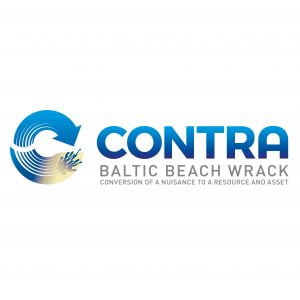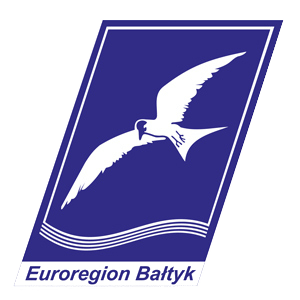
Contra
BALTIC BEACH WRACK – CONVERSION OF A NUISANCE TO A RESOURCE AND ASSET

- University of Tartu,
- Institute of Oceanology of the Polish Academy of Sciences,
- Atlantic Branch of Shirshov Institute of Oceanology, RAS,
- EUCC - Coastal Union Germany,
- University of Southern Denmark,
- KS-VTCtech GmbH,
- Krinova AB,
- Association of Polish Communes Euroregion Baltic,
- Municipality of Køge,
- Linnaeus University,
- Gdańsk University of Technology,
- Estonian Ministry of Environment,
- Hanseatic Environment CAM GmbH.
The CONTRA project compiles the knowledge required for sustainable management of beach wrack in the Baltic Sea Region and carries out case studies for beach wrack treatment. Beach wrack is organic material washed ashore, e.g. torn off seagrass or brown algae. It can cover Baltic Sea beaches for weeks after storms, rotting into a smelly soup and leaking nutrients back into the water. Managing beach wrack is an issue for local authorities and the tourism industry, in particular of the western and southern Baltic Sea.
Wrack management for clean beaches
The CONTRA project aims to change how coastal municipalities perceive and deal with beach wrack and to help develop the knowledge required for its sustainable treatment as part of coastal water management. The project compiles a tool-kit of options for removing and using beach wrack in a useful manner. The tool-kit is meant to help municipalities along the Baltic Sea coast to balance tourists’ demands for clean beaches with environmental protection.
Balancing opposing interests and identifying economic opportunities
Current practices to collect beach wrack create a financial burden for local communities. The methods used to collect and dispose of beach wrack, are also often in direct conflict with measures to safeguard the environment. To address this conflict and to balance opposing interests, CONTRA conducts a fair and comprehensive evaluation of all environmental, social and economic aspects of beach wrack management at six case study sites. This evaluation includes ecological impacts of beach wrack collection, industrial cycles of beach wrack processing and value chains of beach wrack based products or services. Potential products and services include fertilizer, soil improvers, biochar, biocover, coastal protection, biogas production and water quality improvement
A beach wrack cooperation network
The project establishes an international network for knowledge exchange, capacity building, awareness-raising and promotion of low-treatment or no-treatment options for beach wrack. The consortium comprises public authorities, businesses, academia and NGOs coming from six countries (Denmark, Germany, Estonia, Poland, Sweden, Russia). Thematically the consortium covers marine systems, coastal tourism, sustainable development as well as administrative structures of the Baltic Sea region.
PROJECT BRIEF:
Project Area: Blue Growth, Nature Conservation; activities for the quality of Baltic waters, management of coastal areas
Project scope: European or transnational (mainly Baltic Sea countries)
The role of STG ERB: partner with own budget
Co-financing rate: 85%
Project budget: EUR 2,565,180.87
STG ERB budget: EUR 115,353.75
Project consortium: Project implemented jointly with 14 full partners and 22 associated partners with PL, DK, SE, EST, DE
